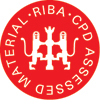The decision to create a Supreme Court for the United Kingdom was groundbreaking and controversial. How has it been deployed in terms of bricks, mortar and judging? This programme explores the background to an exciting legal and architectural project of huge national and constitutional importance.
About the contributors
Lord Phillips of Worth Matravers is the first President of The Supreme Court, having been Senior Law Lord from 1 October 2008. He was previously the Lord Chief Justice of England and Wales.
Lord Phillips began his second stint as Lord of Appeal in Ordinary in October 2008. Before that he served as a Judge of the High Court of Justice, Queen's Bench Division from 1987 to 1995 where he sat in the Commercial Court and presided over the Barlow Clowes and Maxwell prosecutions. He was promoted to the Court of Appeal in 1995 and elevated to Lord of Appeal in Ordinary on 12 January 1999. He was appointed Master of the Rolls and Head of Civil Justice on 6 June 2000, a post that he held until 2005.
On 1 October 2005 he was appointed Lord Chief Justice of England and Wales. He became the Senior Law Lord on 1 October 2008 and is the first President of The Supreme Court of the United Kingdom.
Baroness Hale of Richmond became the United Kingdom's first female Lord of Appeal in Ordinary in January 2004 after a varied career as an academic lawyer, law reformer and judge. She is now the first female Justice of The Supreme Court.
After graduating from Cambridge in 1966, she taught law at Manchester University from 1966 to 1984, also qualifying as a barrister and practising for a while at the Manchester Bar. She specialised in Family and Social Welfare law, was founding editor of the Journal of Social Welfare and Family Law, and authored a pioneering casebook on 'The Family, Law and Society'.
In 1984, she was the first woman to be appointed to the Law Commission, a statutory body which promotes the reform of the law. Important legislation resulting from the work of her team at the Commission includes the Children Act 1989, the Family Law Act 1996 and the Mental Capacity Act 2005. She also began sitting as an assistant recorder.
In 1994, she became a High Court judge, the first to have made her career as an academic and public servant rather than a practising barrister. In 1999, she was the second woman to be promoted to the Court of Appeal, before becoming the first female Law Lord.
She retains her links with the academic world as Chancellor of the University of Bristol, Visitor of Girton College, Cambridge, and Visiting Professor of Kings College London. A homemaker as well as a judge, she thoroughly enjoyed helping the artists and architects create a new home for The Supreme Court.
Jenny Rowe has been Chief Executive of The Supreme Court since May 2008. Immediately before this, she was Director, Policy and Administration at the Attorney General's Office from February 2004 to April 2008. Her responsibilities there included criminal justice policy and the Fraud Review.
Prior to joining the AGO, Jenny was Secretary to the Butterfield Review of HM Customs & Excise and led separate reviews of HMCPS Inspectorate and of the Legal Secretariat to the Law Officers.
She was Director, Corporate Services in the Lord Chancellor's Department (LCD) from December 1999 to January 2003, and Principal Private Secretary to the Lord Chancellor (Lord Irvine) from October 1997 to October 1999.
Jenny's previous posts also include Principal Establishment and Finance Officer at the Serious Fraud Office, and Head of Criminal Policy Division in LCD. She was Principal Private Secretary to Lord Mackay, Lord Chancellor from 1990 to 1992.
Ian Caplin is a TV producer, presenter and writer. He is qualified as a Barrister, Solicitor and Solicitor Advocate, and has formerly practised as both in leading chambers and US and UK law firms in London across a range of sectors.
As the producer of the Law Channel for 5 years, Ian covered, amongst other things, the Constitutional Reform Act, interviewing the Lord Chancellor, Lord Chief Justice, Attorney General and Senior Law Lord on constitutional issues. He has made over 300 TV and radio appearances for the BBC, Sky, ITN, CNN and many others discussing legal issues in the news, and regularly writes on legal issues for national and international newspapers.
His pieces on constitutional issues, including the UK Supreme Court, have appeared in newspapers in the UK, Europe, the US and New Zealand, including the Times, Financial Times and the Wall Street Journal.
Ian also teaches constitutional law at the College of Law in London. He has a law degree from Oxford University.
 Disclaimer: NBS TV programmes are the intellectual property of NBS Enterprises and it shall be a breach of this right to copy, or in any way exploit commercially or show in public any of the programmes without the express permission of NBS Enterprises.
Disclaimer: NBS TV programmes are the intellectual property of NBS Enterprises and it shall be a breach of this right to copy, or in any way exploit commercially or show in public any of the programmes without the express permission of NBS Enterprises.
